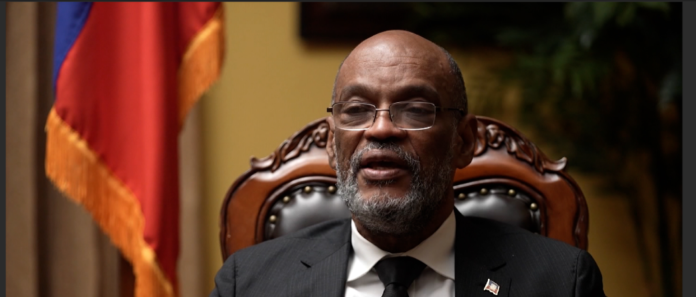Jacob Davis
CSMS Magazine
Haiti, a nation already grappling with political instability, economic turmoil, and natural disasters, has been plunged into further chaos as violence erupted following Prime Minister Ariel Henry’s refusal to step down. The situation underscores the deep-seated political tensions and power struggles that have plagued the country for decades, exacerbating the challenges facing its citizens and undermining efforts to achieve stability and prosperity.
The recent unrest stems from allegations of government corruption and complicity in the assassination of former President Jovenel Moïse in July 2021. Prime Minister Ariel Henry, who assumed office shortly after Moïse’s death, has been facing mounting pressure to resign amid accusations of involvement in the assassination plot. However, Henry has vehemently denied any wrongdoing and has refused to step down, further fueling public outrage and unrest.
The refusal of Prime Minister Henry to resign has led to widespread protests and clashes between demonstrators and security forces across Haiti. The streets have been marred by scenes of violence, with reports of arson, looting, and clashes resulting in casualties and widespread destruction. The escalating turmoil has paralyzed daily life, with businesses shuttered, transportation disrupted, and essential services strained, exacerbating the humanitarian crisis facing the country.
The political crisis in Haiti is not isolated but deeply intertwined with socioeconomic disparities, systemic corruption, and external interference. Decades of political instability, weak governance, and economic mismanagement have left Haiti vulnerable to exploitation and manipulation by both domestic and foreign actors. The lack of trust in government institutions and the failure to address the root causes of poverty and inequality have fueled grievances and resentment among the population, driving them to the streets in protest.
Prime Minister Henry’s refusal to step down amid mounting pressure reflects the entrenched interests and power dynamics that continue to shape Haiti’s political landscape. Despite calls for accountability and transparency, the culture of impunity persists, allowing those in positions of power to evade accountability for their actions. The lack of a credible and impartial justice system further undermines efforts to hold perpetrators accountable and restore faith in democratic governance.
The international community has also been closely monitoring the situation in Haiti, expressing concern over the deteriorating security and humanitarian conditions. Calls for dialogue, restraint, and respect for democratic norms have been issued, urging all parties to prioritize the interests of the Haitian people and work towards a peaceful resolution to the crisis. However, the complexities of the situation and the deep-seated distrust among stakeholders pose significant challenges to achieving a sustainable and inclusive solution.
Amidst the turmoil, it is imperative for all parties involved to prioritize the well-being and safety of the Haitian people. Immediate steps must be taken to de-escalate tensions, restore order, and address the underlying grievances driving the unrest. This requires genuine commitment to dialogue, reconciliation, and inclusive governance, as well as tangible efforts to address the socioeconomic challenges facing Haiti.
Note: Jacob Davis is editor at large for CSMS Magazine. He also writes on sociopolitical issues.
Also see: Current Discussions Surrounding another UN Force in Haiti


